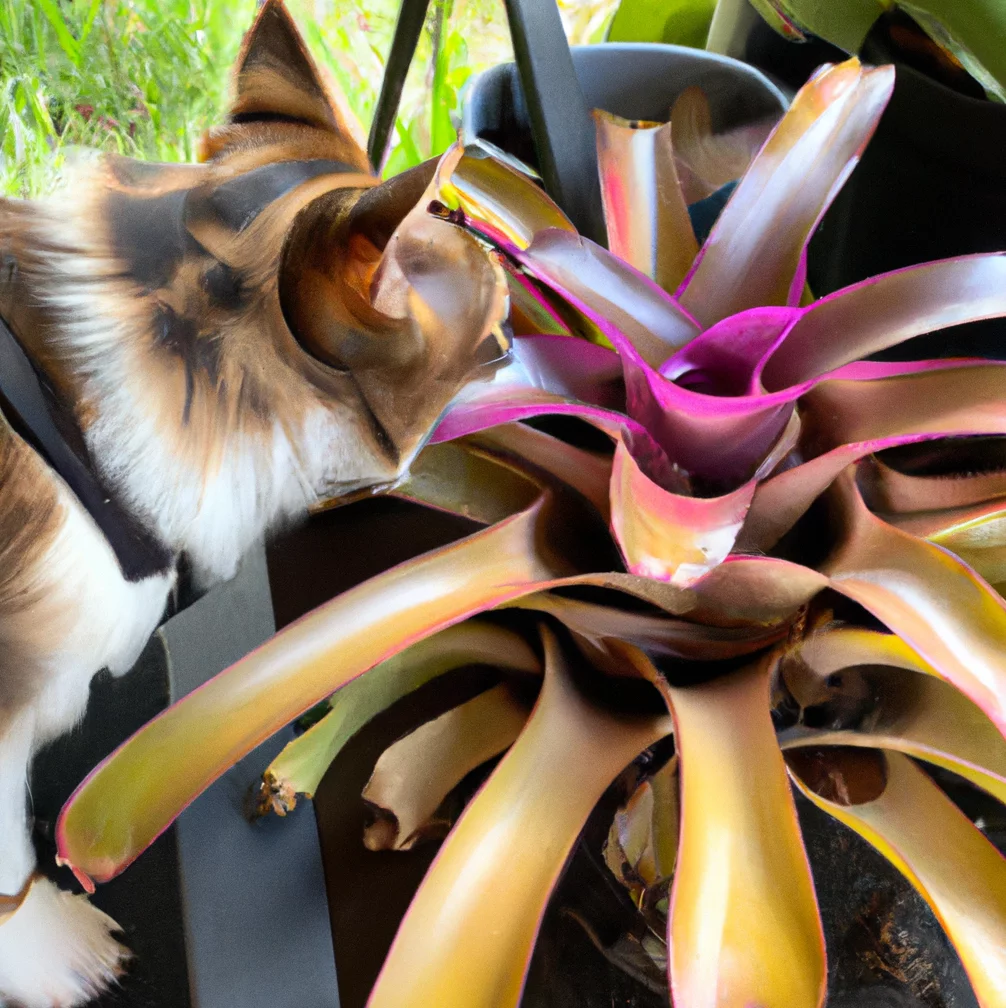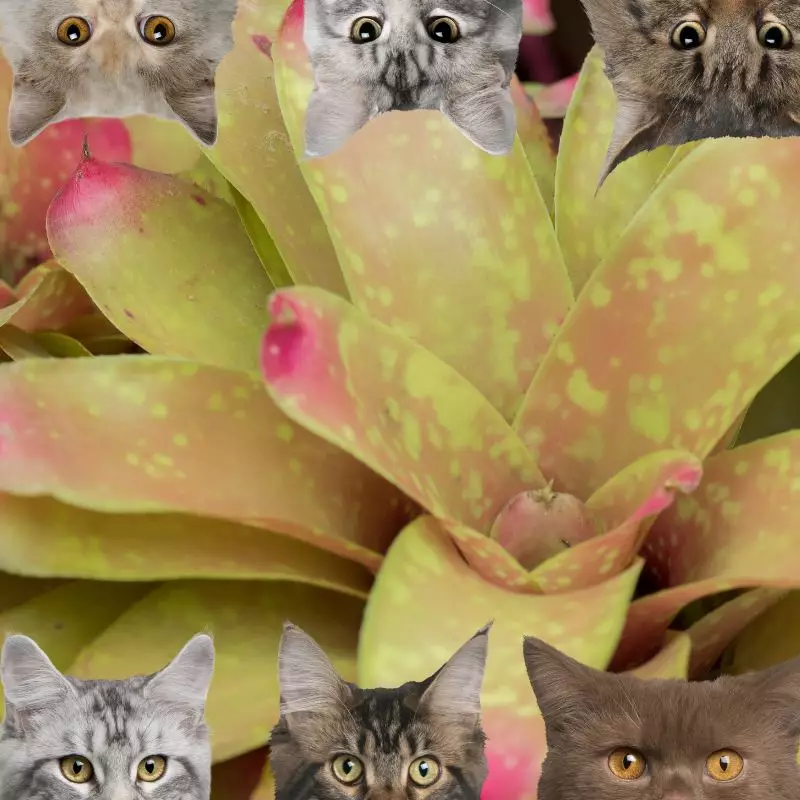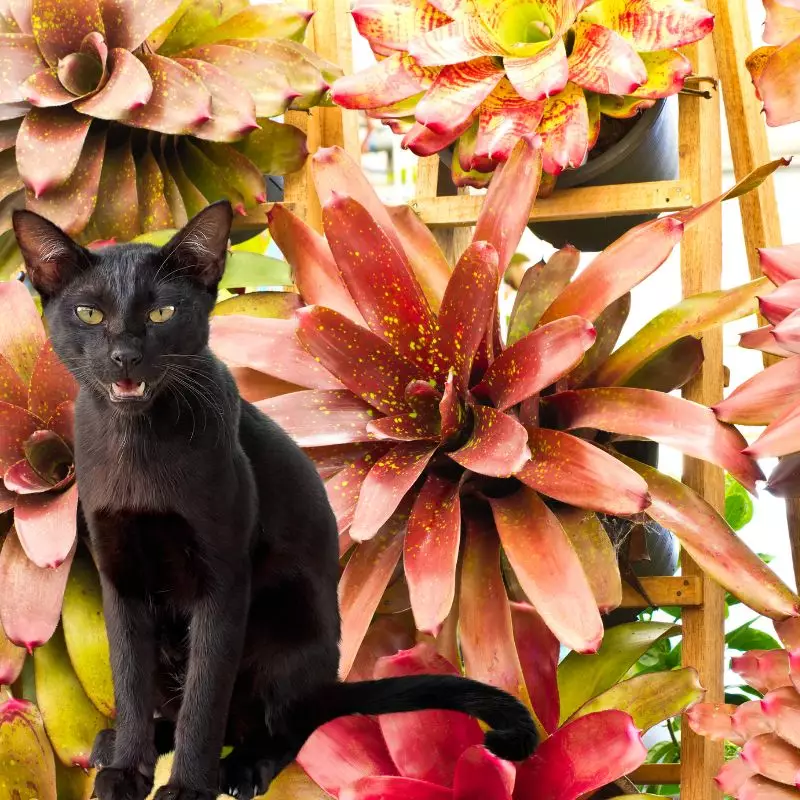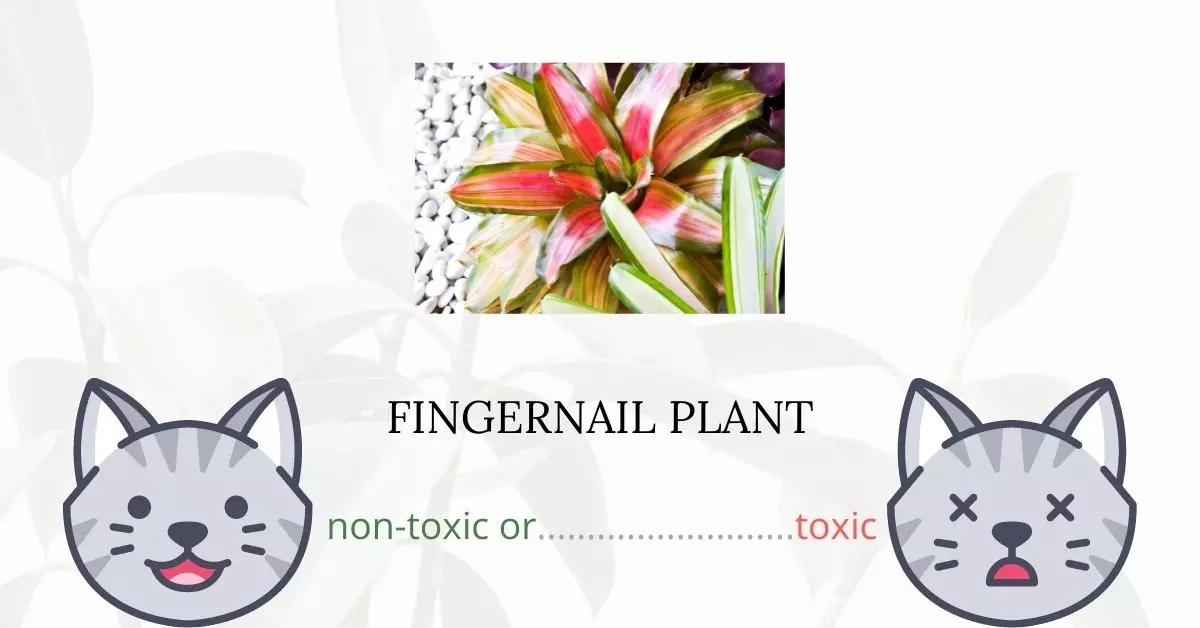No, the Fingernail plant is not toxic for cats.
This article has been crafted in collaboration with a team of experienced DVMs (doctors of veterinary medicine). Through their invaluable contributions, we aim to provide precise and up-to-date insights into the potential risks linked with various plants, focusing here on the Fingernail Plant. Furthermore, we’ve undertaken thorough research using high-authority websites such as the ASPCA and PetMD to substantiate our findings.
It’s worth noting that the Fingernail plant, a member of the bromeliad plant family (Bromeliaceae), is considered generally non-toxic by the ASPCA (American Society for the Prevention of Cruelty to Animals). Hence, it poses no poisoning threat to humans, cats, dogs, or other standard indoor pets.
Can Cats Eat Fingernail Plant?

Eating a fingernail plant will not poison your cats. Although the plant is not harmful, it does not mean that your cats should be allowed to eat indoor house plants. Cats often vomit after eating the fingernail plant. Furthermore, it can occasionally cause choking.
Many growers use fertilizers to help their plants grow faster. Unfortunately, these fertilizers may include potentially hazardous substances that can harm your feline companions.
Fertilizers for plants, such as bromeliads, frequently include potassium, phosphorus, and nitrogen. Some fertilizers also contain copper, zinc, iron, manganese, cobalt, boron, and molybdenum. Large concentrations of these substances can poison your cat, while little amounts might cause stomach upset.
What is a Fingernail Plant?

Fingernail Plant, scientifically known as Neoregelia spectabilis, is a tropical plant native to Brazil. It derives its name from the brilliantly colored stripes that resemble painted fingernails on the ends of its leaves. Many people around the world keep the plant as a houseplant. It is highly valued for its vibrant foliage.
The leathery, strap-like leaves of this plant are mostly dull green on the outside and become more vibrant inside. The plant’s leaves form a rosette around its base, and blue blooms bloom in the center. Because of its lovely foliage and simple maintenance requirements, the Fingernail Bromeliad is a popular houseplant.
Keeping Cats Away From Fingernail plant

The fingernail plant’s bright-colored leaves are attractive to cats. If your cat gets too close to the bromeliad, you can spray it with a spray bottle. The cat would be unable to approach the plant if you performed this regularly.
Insect repellent sprays are also quite useful. Simply spray it onto your plant to deter your cat from approaching it. Vinegar can be also used as a deterrent but should be avoided for some plants because it may cause them harm.
You can put pebble stones on your plant’s pot, but make sure there’s enough area for the soil to be moistened; this will deter your cats from digging through it.
Plants to Avoid For Your Cats
If you are a cat owner and unsure if the plants growing in your yard are harmful to your cats, check out this list of toxic plants for cats. You can also check our list of non-toxic plants for cats.





